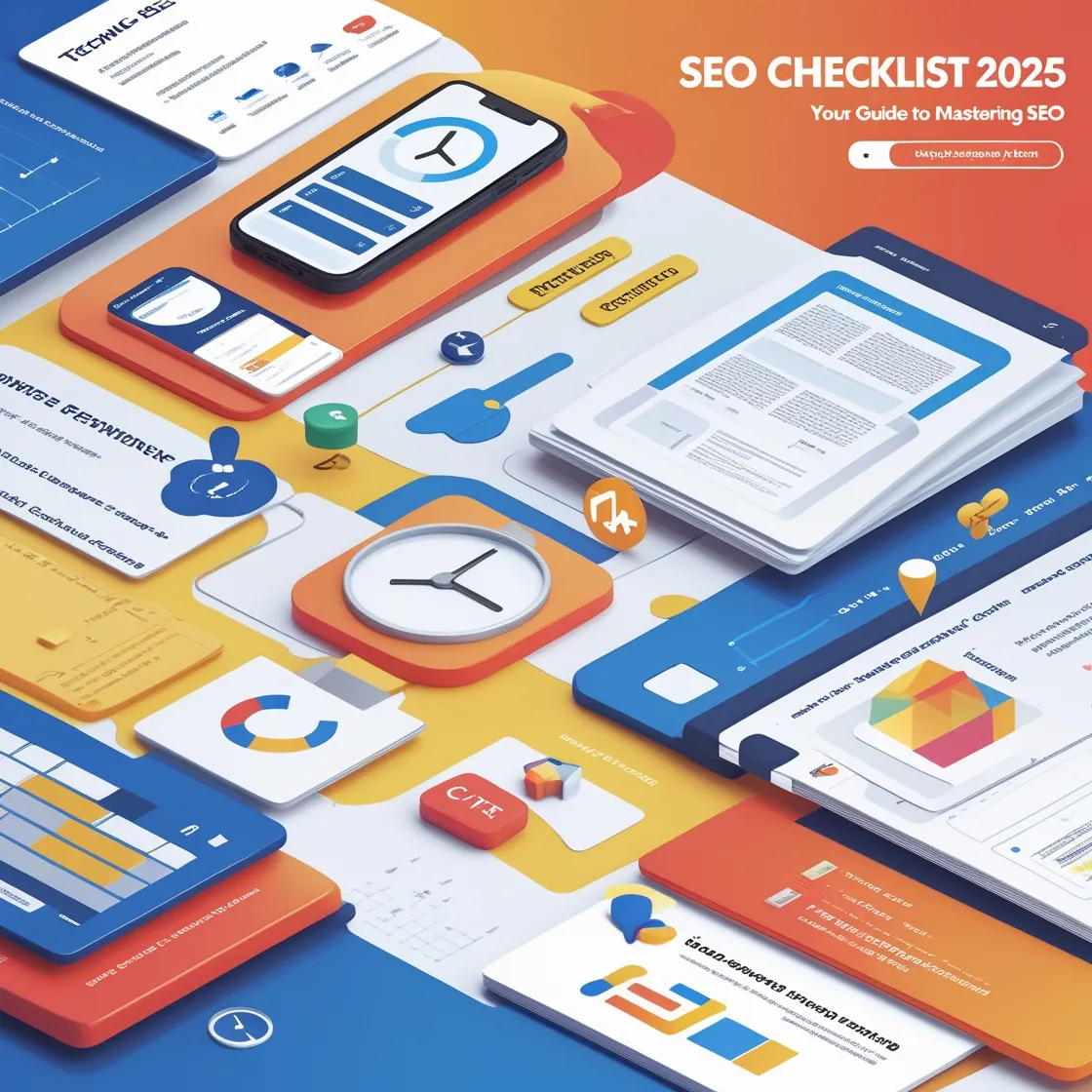10 min read SEO Checklist 2025

In the ever-evolving landscape of digital marketing, search engine optimization (SEO) remains a cornerstone for online success. With Google and other search engines rolling out frequent updates, staying ahead of the curve is essential for businesses and freelancers alike. At Xp Freelancer, we connect you with vetted SEO experts who can help you navigate these changes effectively. Here's the ultimate SEO checklist for 2025 to keep your website optimized and competitive.
1. Keyword Research
Why It’s Important:
Keyword research forms the foundation of any successful SEO strategy. It ensures your content aligns with user intent and targets the right audience.
Actionable Steps:
- Use advanced tools like SEMrush, Ahrefs, or Google Keyword Planner to identify high-volume, low-competition keywords.
- Prioritize long-tail keywords to capture specific search queries.
- Focus on intent-based keywords: informational, navigational, transactional, and commercial.
- Analyze competitor keywords for new opportunities.
2. Content Optimization
Why It’s Important:
High-quality, engaging content improves user retention and ranks better in search engines.
Actionable Steps:
- Create content that solves specific problems for your audience.
- Ensure every page targets a primary keyword and related secondary keywords.
- Use schema markup to enhance search visibility with rich snippets.
- Update old blog posts with fresh data and insights to maintain relevance.
3. On-Page SEO
Why It’s Important:
Optimizing on-page elements boosts your page’s relevance and ranking potential.
Actionable Steps:
- Optimize title tags with target keywords (50-60 characters).
- Write compelling meta descriptions (up to 160 characters).
- Use header tags (H1, H2, H3) to structure content effectively.
- Maintain an optimal keyword density (1-2%) without keyword stuffing.
- Use descriptive alt text for images and compress files to improve load speed.
4. Technical SEO
Why It’s Important:
Technical SEO ensures that search engines can crawl, index, and rank your site efficiently.
Actionable Steps:
- Perform regular site audits using tools like Screaming Frog or Sitebulb.
- Ensure your site is mobile-friendly and passes Google’s Mobile-Friendly Test.
- Implement HTTPS for secure browsing.
- Fix broken links and remove duplicate content.
- Optimize site speed by enabling browser caching and using a CDN.
5. User Experience (UX) and Core Web Vitals
Why It’s Important:
Google prioritizes user-friendly websites with good Core Web Vitals scores.
Actionable Steps:
- Improve Largest Contentful Paint (LCP): Ensure key content loads within 2.5 seconds.
- Enhance First Input Delay (FID): Minimize response times for user interactions.
- Optimize Cumulative Layout Shift (CLS): Prevent layout shifts for better visual stability.
- Use intuitive navigation and a clean site design.
6. Mobile-First Indexing
Why It’s Important:
Google now uses the mobile version of your site for ranking and indexing.
Actionable Steps:
- Use responsive design to ensure your site adapts to various screen sizes.
- Test your site on multiple devices and browsers.
- Optimize mobile load times with compressed images and lazy loading.
- Avoid intrusive pop-ups that hinder the mobile experience.
7. Local SEO
Why It’s Important:
Local SEO drives traffic from nearby customers, especially for small businesses and service providers.
Actionable Steps:
- Claim and optimize your Google My Business listing.
- Use local keywords, e.g., “SEO services in New York.”
- Encourage satisfied clients to leave positive reviews.
- Build citations on local directories and ensure NAP (Name, Address, Phone) consistency.
8. Backlink Building
Why It’s Important:
High-quality backlinks signal authority and trustworthiness to search engines.
Actionable Steps:
- Pursue guest blogging opportunities on reputable sites.
- Create shareable, link-worthy content like infographics and research studies.
- Disavow toxic backlinks that harm your SEO.
- Build relationships with industry influencers for collaboration and mentions.
9. AI and Voice Search Optimization
Why It’s Important:
AI technologies and voice search are reshaping how users interact with search engines.
Actionable Steps:
- Optimize for natural language queries and question-based keywords.
- Use structured data to improve voice search compatibility.
- Incorporate FAQs in your content to address common voice queries.
10. Content Formats and Multimedia
Why It’s Important:
Diverse content formats keep users engaged and improve dwell time.
Actionable Steps:
- Create videos, podcasts, and infographics alongside traditional blog posts.
- Optimize multimedia content for search engines (e.g., video transcriptions).
- Use descriptive file names and alt attributes for all multimedia files.
11. Social Signals and Community Engagement
Why It’s Important:
While not a direct ranking factor, social signals enhance brand visibility and drive traffic.
Actionable Steps:
- Share your content consistently on platforms like Twitter, LinkedIn, and Facebook.
- Engage with your audience through comments and discussions.
- Use social sharing buttons to encourage easy distribution.
- Collaborate with influencers for amplified reach.
12. Analytics and Monitoring
Why It’s Important:
Data-driven insights help you refine your strategy and track progress.
Actionable Steps:
- Use Google Analytics and Search Console for performance tracking.
- Set up goal tracking to monitor conversions.
- Track keyword rankings and organic traffic using SEO tools.
- Regularly analyze user behavior metrics like bounce rate and time on page.
13. E-A-T: Expertise, Authoritativeness, Trustworthiness
Why It’s Important:
Google rewards content that demonstrates credibility and expertise.
Actionable Steps:
- Publish well-researched, authoritative content with credible sources.
- Highlight author bios and credentials on your site.
- Secure your site with an SSL certificate and display trust badges.
- Earn positive reviews and testimonials to build trust.
14. Regular Updates and Audits
Why It’s Important:
SEO is not a one-time effort but an ongoing process.
Actionable Steps:
- Conduct quarterly SEO audits to identify gaps and opportunities.
- Stay informed about Google algorithm updates and adapt accordingly.
- Refresh old content with updated keywords, links, and visuals.
- Monitor competitors to stay ahead in your niche.
Conclusion
SEO in 2025 is more dynamic and competitive than ever. By following this comprehensive checklist, you can ensure your website remains visible, relevant, and user-friendly. Whether you’re a business owner, a marketer, or a freelancer, implementing these strategies will give you a competitive edge.
Need professional help? Xp Freelancer connects you with vetted SEO experts who can implement these strategies and drive results for your business. Start optimizing today to secure your online success!






































































